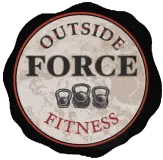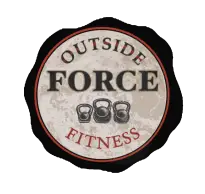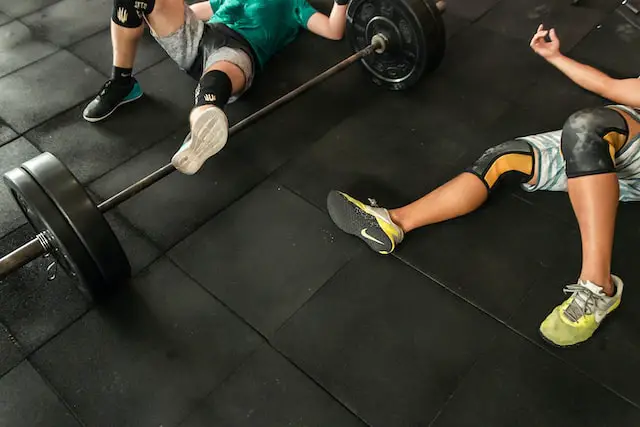Some people don’t call it a workout unless they puke. These are very, very rare individuals but they gave a bad reputation to high intensity exercise. So how intense should your workout be?
Intensity and Results
There is pretty much no argument that if you want amazing results, you have to exercise at high intensity.
Intensity is a funny thing. It could mean that you’re doing heavy weights over short distances or light weights over long distances, but either way you’re doing it in a short amount of time.
You can walk or jog slowly, but you’re never going to get the same result as someone who is sprinting as fast as humanly possible. It just doesn’t happen. There are people who write books titled “How I got huge muscles from lifting 5 pound weights.” I’m sorry, it just doesn’t happen because there is no intensity there.
So, now I have to be responsible and tell you that not everyone should just start doing sprints and run as fast as they possibly can. It all has to be done on a gradient.
Why Are Gradients Important?
Not just anyone can go at an all-out sprint. You’ve got to work up to it.
Let’s take sprinting as an example. You have to work up to it over time (weeks or months), but you also have to work up to it within that day – meaning you need a warmup.
If you don’t warm up within that day, you’re liable to pull a muscle. In fact, you’re likely to pull a muscle. I’ve seen this happen regularly with people who don’t bother warming up.
Big piece of information here: The more intense the exercise, the more thorough the warm up needs to be. Otherwise you’ll injure yourself.
This all comes back to gradients. You need to work up to your target speed on a gradient within any given day. And your target speed needs to increase on a gradient from week to week. It is that simple and there is no more to it. This is the principle of progressive overload.
See, your mind can change in an instant, but your body takes time. You can imagine a mountain in front of you in an instant and in the next have it gone. But for it to come to reality in the physical universe, it takes quite a bit of shoveling. You can only shovel so much at a time.
The same goes with your body. It can only handle so much stress at one time. Then it adjusts and heals from that and gets a bit stronger and is ready to handle a tiny bit more.
Over time this adds up.
Increasing Gradients Over Time
The principle of overload is important to understand. You were at Level 5 last week and this week you’re going to try for Level 6. Don’t try to skip up to Level 9.
That’s it. If you lifted 145 pounds last time, try to only increase it by about 10% this week. Then, if you’re good at that, go for another 10% the next week.
It isn’t just your muscles that adjust. It is your tendons, your ligaments, your nervous system and a ton more. Just because your muscles aren’t sore doesn’t mean you’ve fully recovered from the slaughterfest of a training session you had the other day.
Some people get surprised when I say, “Your nervous system adjusts.” There are measurable changes that happen in the nerve activity within a muscle once you start training. You are able to generate more of it the more you train a certain muscle group. This is the reason for “big gains in strength” at the beginning of an exercise program. It has nothing to do with muscle at all, just nerves.
So, let’s say you start out from not training at all and we have you on a sprinting program. Your first several weeks will show gains solely in neurological activity. Then your muscles will respond. And all throughout that time your tendons and ligaments will be catching up. They have less blood flow so they need more time.
Keeping the overload on (at about 10% per week) will give everything time to heal and you’ll make consistent gains.
Affiliate Disclosure: We may earn a commission if you click a link on our site and make a purchase. For more info, see our disclaimer.
Should You Actually Work Out Till You Puke?
This has been glorified in several movie films and various hardcore runners and other athletes. It isn’t actually a thing. I promise, it really isn’t common.
In some CrossFit gyms and other High Intensity Interval Training gyms, you’ll have people that puke. It is always traceable to them being dehydrated or stuffing their face with tacos beforehand. I’ve cleaned up puke and interrogated those who spilled their guts. I know firsthand.
My direct answer to this question is: No, you should not puke during your workout.
Aside from being a hygiene issue, it just isn’t productive. Back off the intensity and keep going. We are trying to get more work from you. If the sole intention was to empty your stomach, there are more direct ways to do that.
The whole thing that sparked me to write this was when I saw a shirt that said, “Squat Till You Puke.” I wondered what it meant. Then I saw another one, and another.
Why Do We Puke When We Exercise?
There is a simple reason for this. From what I understand, it has to do with acidity.
When I was in college, I took an Exercise Physiology lab and did something we called “The Puke Test.”
In this lab we had a 30 second test on a stationary bike. The person got up to 100rpms on the bike and then a weight was dropped to add resistance for a very rough 30 seconds of work. The measurement of work done in that period came up with a certain number to measure a certain type of fitness.
The exact measurement isn’t the point here. The point is that over half of the people that did that test either puked or were right on the edge at the end of the 30 second test.
We were lectured about the amount of lactic acid that goes into the blood during that 30 seconds and then when that blood travels to the stomach, it causes the stomach to flip the switch labeled, “Everything out!”
There was a theoretical point of too much acid in the stomach that made everything eject and, for some reason, this test was a wonderful emptier of stomach contents.
So what I learned in college was that it had to do with acid in the blood.
Our knowledge of the body is constantly changing so that may or may not be true. I’m just here to give the data that I know.
Accidents Happen – I Try To Make Up for Them
So, sometimes a very nice mother just gets sick at her stomach. Randomly.
You know, I’m a fitness trainer, but I don’t know what these people eat. I’m not aware when they are on their periods or having hormone issues and sometimes they don’t even know.
I worked her out as usual, she sat down to catch her breath. It’s happened a thousand times.
But this time, she looks a bit funny. I run and grab a trash bin and give it to her and walk her to the bathroom. She’s yacking the whole time.
So I give her a free t-shirt of the gym.
That makes up for it, right?
Conclusion
Puke happens. It isn’t the norm or an ideal scene, by far.
I have never puked from working out and I’ve worked out nearly every day for the last 20 years. That should say something.
If I could get 5 more pounds of muscle from puking, I would have incorporated that into my workout. I’m kind of a whore when it comes to fitness. I’ll do anything to get it. It just so happens that eating right and regularly exercising is what works.
Doing weird, extreme things doesn’t work.
Intense workouts do work when approached on a gradient.



